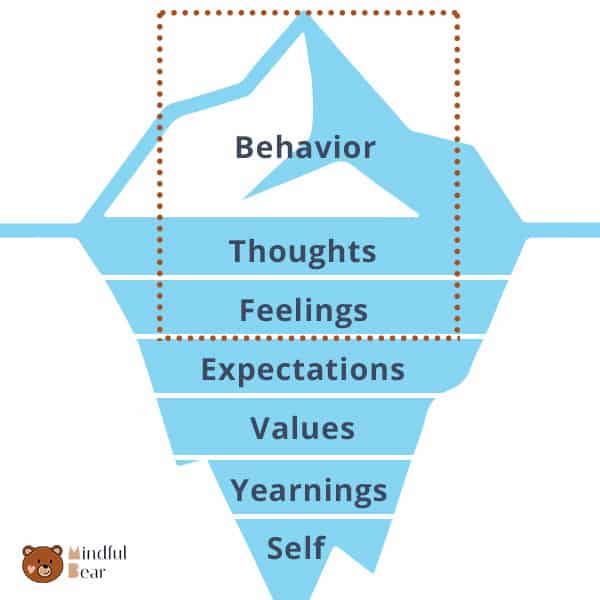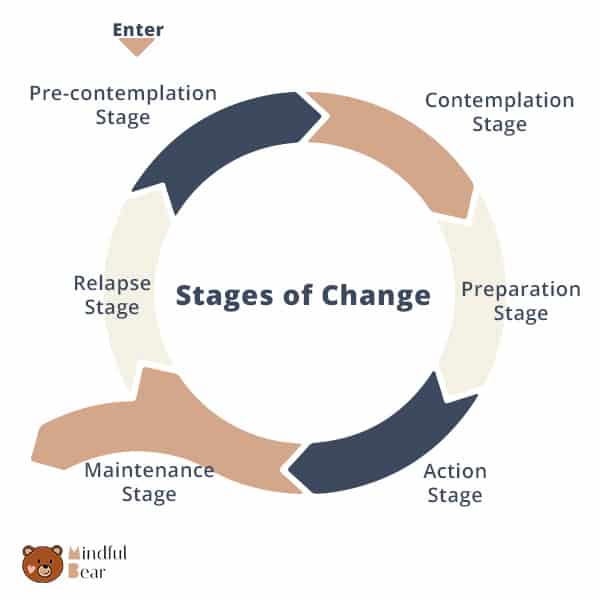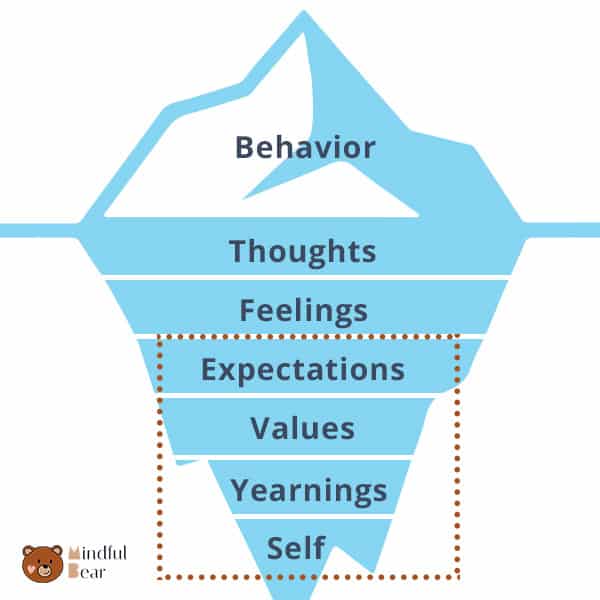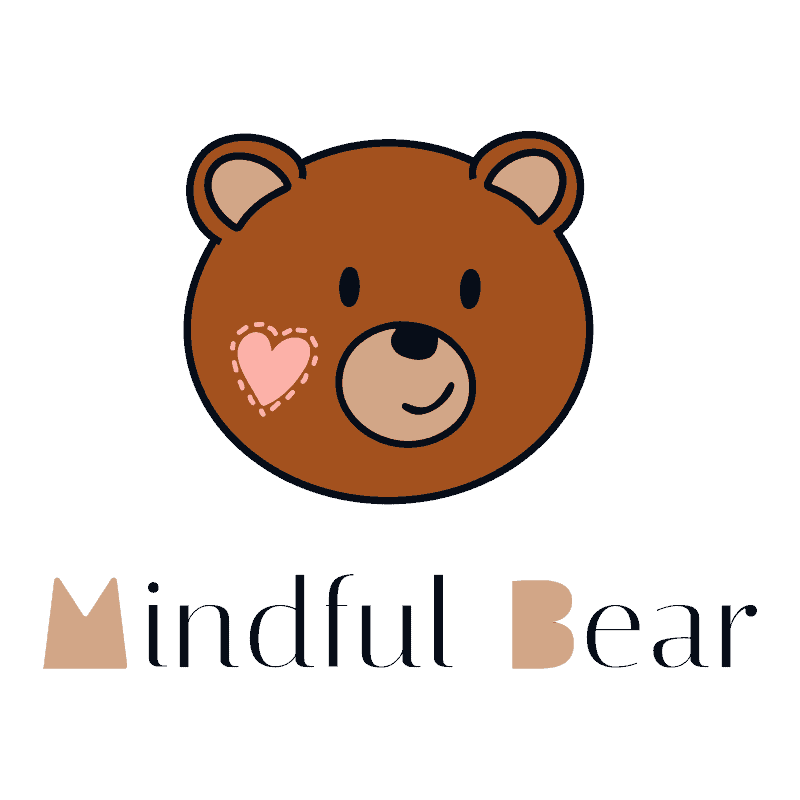Our Secret Sauce
The 4A Method
MindfulBear's innovative combination of play therapy, motivational interviewing, cognitive behavioural therapy and mindfulness can help your child deal with behavioural issues.
The 4A method includes 4 stages of therapy, Awareness, Activation, Adjustment and Advancement with each stage achieving breakthrough for your child.
Stage 1
Awareness
We identify underlying issues of your child with Cognitive Behavioural Therapy and formulate an action plan designed to help your child move towards desirable change.
In this phase, our key objective is to identify your child's learnt negative belief, the root cause of their bad behaviour. We do this through the use of Cognitive Behavioural Therapy (CBT).
With CBT, we dig deep into the recesses of your child’s mind to access their feelings, thoughts and behaviours.
We dig deep to identify your child’s emotional struggles. This is the first step, an important step.

Iceberg Model (Virginia Satir, 1988)
Once this negative belief is known, only then could we formulate targeted solutions designed to help your child move towards desirable change.
We formulate an action plan. We set goals for your child, illuminating a path way for them to move towards change.
Stage 2
Activation
We kick starts the change process with motivational interviewing and replacement technique, gradually moving your child to take their first step of change.
Once the negative belief are identified, we work towards change.
But here’s a fact: We cannot force change. Change is only possible when there is a desire to change.
First, we identify where your child is at which stage of change (image below), then we kick start the change process.

Stages of Change (Elizabeth Hartney, 2011)
This includes motivational interviewing, to identify your child’s desire for change.
Understanding your child’s motivation, and then using this motivation as the fuel to propel desirable action. Gently leading your child, nudging them, incentivising them to take their very first steps of change.
Then we use replacement technique, to replace bad behaviours with good ones. This is a delicate process, a balance between motivation and action.
We slowly shed away your child’s negative coping strategy and tip the scale towards the positive.
Allowing them to work at their own pace, gradually moving your child towards their first step of change.
Stage 3
Adjustment
An iterative process between you, your child and the therapist. We review the steps your child has taken towards change, assess its suitability and adjust it for long term change.
Congrats! Your child had taken the first step towards change, but, will they take the next step or the multiple steps forward?
In this stage, we review and explore different replacement techniques to find the best one for your child.
"Best” is a highly subjective word because what’s best for one child may not be the best for another.
The human mind is complex, so there is no one size fits all solution.
Here, we review the steps your child has taken towards change and assess its suitability. If your child does not react well, we need to explore other techniques.
We may dig deeper into your child's mind, to access your child’s expectations, values, yearnings and self.

Iceberg Model (Virginia Satir, 1988)
This helps us gather new insights about your child. To identify their deeper barriers to change, figuring out any emotional struggles that is holding your child back.
This is an iterative process, an ongoing process between you, your child and the therapist. To design, adjust and tweak the most effective solution suitable for your child.
A solution your child can feel comfortable to apply today, tomorrow, and the future, towards long term positive change.
Stage 4
Advancement
We make the change permanent. Your child begins to internalising these changes and learn how to deal with lifestyle stressors when they happen.
Your child had made it!
You can visibly see changes in your child’s attitudes, behaviour and actions. Now, we just need to make it stick, without visiting us too often (we really don’t mind if you want to!).
Here is where we attempt to make the change PERMANENT.
Setbacks and obstacles are a part of life and so relapse management is necessary.
In this stage, we will teach your child how to recognise lifestyle stressors and arm your child with a set of relapse prevention tools.
Relapse could be emotional, mental or physical, these set of tools helps your child manage and deal with stressors when it happens.
This is a life skill your child will acquire because relapse will happen. But now, things are different, your child is prepared this time.
And as your child navigates through life, practising these life skills, they will begin to internalise and reinforce these healthy change. It will be a part of who they are.
Here is how the change become a habit. This is how the change becomes durable, long term, sticky and PERMANENT.
